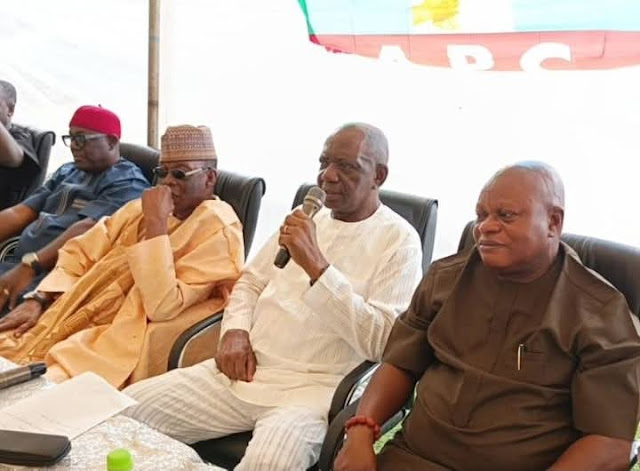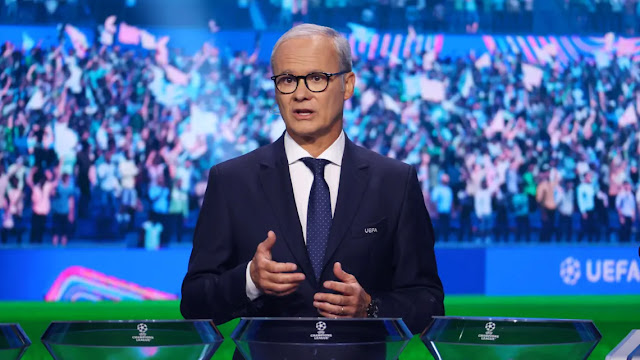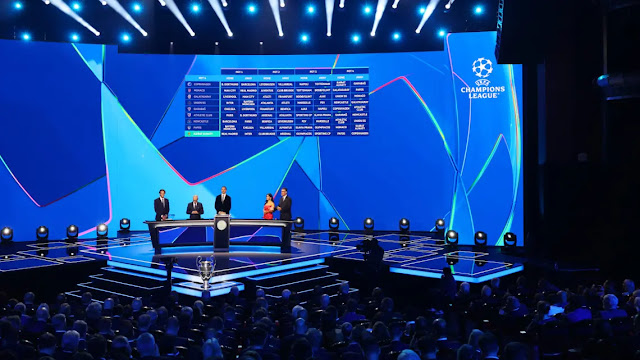On Wednesday, August 27, 2025, the Delta State Executive Committee of the All Progressives Congress (APC) made a historic decision, passing a unanimous vote of confidence and endorsing President Bola Ahmed Tinubu and Governor Sheriff Oborevwori as the party’s sole candidates for the presidential and gubernatorial elections in 2027. The resolution, adopted during a pivotal State Executive Committee (SEC) meeting at the APC Secretariat in Asaba, underscores the party’s commitment to unity, discipline, and strategic mobilization ahead of the next general elections. Led by State Chairman Elder Omeni Sobotie, the meeting brought together party leaders from across Delta’s 25 Local Government Areas, marking a significant step toward consolidating the APC’s influence in the state. This article explores the details of the endorsement, the context of the decision, the broader implications for Delta State and Nigerian politics, and the APC’s vision for a victorious 2027 election campaign.
A Landmark Decision for Delta APC
The SEC meeting, held at the APC Secretariat in Asaba, was a defining moment for the Delta State chapter of the All Progressives Congress. Under the leadership of Elder Omeni Sobotie, the meeting convened members of the State Executive Committee and local government chairmen, representing the party’s grassroots and leadership structures across Delta’s diverse regions. The unanimous endorsement of President Tinubu and Governor Oborevwori as the sole candidates for 2027 reflects a strategic alignment of the party’s goals with the leadership of two prominent figures who have shaped Nigeria’s political landscape.
In his welcome address, Sobotie set the tone for the meeting, emphasizing the importance of unity, discipline, and steadfastness in strengthening the APC’s position in Delta State. “I charge party leaders to remain steadfast, disciplined, and united in strengthening the APC in Delta State under the leadership of Governor Oborevwori,” he said, highlighting harmony and loyalty as critical ingredients for electoral success. Sobotie’s call for reconciliation and inclusion across all levels of leadership addressed the internal divisions that have occasionally challenged the party, signaling a commitment to healing rifts and building a cohesive front.
The meeting’s agenda was multifaceted, focusing on grassroots mobilization, internal party cohesion, and strategic planning for the 2027 elections. Discussions centered on repositioning the APC as a dominant force in Delta politics, a state historically contested by multiple political parties. Sobotie also briefed attendees on an upcoming empowerment program designed to deliver tangible benefits to party members and communities, reinforcing the APC’s commitment to service and grassroots engagement.
The Endorsement: Tinubu and Oborevwori as Sole Candidates
The highlight of the SEC meeting was the adoption of a resolution endorsing President Bola Ahmed Tinubu as the APC’s sole presidential candidate and Governor Sheriff Oborevwori as the sole gubernatorial candidate for Delta State in 2027. The motion, moved by Chief Ubu Jiminyevwe Digbame, State Assistant Auditor, and seconded by Pastor Norbert Sochukwudinma, Chairman of Aniocha South Local Government Area, was met with thunderous applause, reflecting the overwhelming support of the party’s leadership.
The endorsement of President Tinubu was grounded in his “visionary leadership, bold economic reforms, and commitment to the Renewed Hope Agenda.” Since assuming office in 2023, Tinubu has pursued ambitious policies aimed at transforming Nigeria’s economy, including fuel subsidy removal, currency reforms, and infrastructure investments. The Renewed Hope Agenda, his administration’s blueprint for development, emphasizes economic diversification, job creation, and social welfare, resonating with the APC’s vision for Nigeria’s future. The Delta APC’s decision to endorse Tinubu as the sole candidate signals confidence in his ability to lead the nation through its challenges and deliver on his promises by 2027.
Similarly, the endorsement of Governor Oborevwori was based on his “proven record of service, inclusive leadership, and dedication to good governance” under the M.O.R.E Agenda (Meaningful Development, Opportunities for All, Realistic Reforms, and Enhanced Peace and Security). Elected in 2023, Oborevwori has prioritized infrastructure, education, healthcare, and security, earning praise for his inclusive approach and commitment to Delta’s diverse population. The APC’s decision to back Oborevwori as its sole gubernatorial candidate reflects a strategic move to align with a leader who has demonstrated tangible results and broad appeal.
The unanimous nature of the endorsements underscores the Delta APC’s determination to present a united front in 2027. By selecting sole candidates early, the party aims to avoid the internal wrangling and primary contests that have sometimes weakened its electoral prospects. The decision also signals a shift in Delta’s political dynamics, as the APC seeks to capitalize on Oborevwori’s popularity and Tinubu’s national leadership to gain ground in a state traditionally dominated by other parties.
The Context: Delta’s Political Landscape
Delta State, created on August 27, 1991, is a politically significant region in Nigeria, known for its ethnic diversity and economic importance as an oil-producing state. The state’s three senatorial districts—Delta North, Delta Central, and Delta South—represent a complex mix of ethnic groups, including Aniocha, Ika, Ndokwa, Urhobo, Itsekiri, and Ijaw. This diversity has shaped Delta’s political landscape, with parties competing to appeal to a broad coalition of voters.
The APC’s rise in Delta has been a gradual process, as the state was historically a stronghold of the People’s Democratic Party (PDP). However, recent political shifts, including Oborevwori’s alignment with the APC and the party’s growing grassroots presence, have strengthened its position. The endorsement of Oborevwori, a former PDP governor who has reportedly joined the APC, reflects the party’s strategic efforts to consolidate power by embracing popular leaders with cross-party appeal.
The decision to endorse Tinubu and Oborevwori also aligns with Delta’s tradition of zoning, a political arrangement that rotates key positions among the state’s senatorial districts to ensure equitable representation. Oborevwori, from Delta Central, represents a continuation of this principle, which has fostered political stability in the state since 1999. The APC’s endorsement of a single gubernatorial candidate reinforces its commitment to zoning, positioning the party as a champion of fairness and inclusivity.
Grassroots Mobilization and Empowerment
The SEC meeting placed significant emphasis on grassroots mobilization, recognizing that the APC’s success in 2027 will depend on its ability to engage voters at the community level. Sobotie’s call for party leaders to embrace reconciliation and inclusion reflects an understanding of the importance of unity in building a strong electoral base. By healing internal divisions, the APC aims to present a cohesive platform that resonates with Deltans across ethnic and regional lines.
The forthcoming empowerment program, announced during the meeting, is a key component of the APC’s grassroots strategy. Designed to deliver relief and tangible benefits to party members and communities, the program underscores the party’s commitment to service-oriented politics. Such initiatives are critical in a state like Delta, where economic challenges, including unemployment and rising living costs, have heightened the demand for government support. By addressing these needs, the APC can build trust and loyalty among voters, strengthening its position ahead of 2027.
The involvement of local government chairmen from all 25 Local Government Areas highlights the party’s focus on grassroots structures. These leaders, who serve as the APC’s representatives at the local level, are instrumental in mobilizing communities, disseminating party messages, and addressing local concerns. Their participation in the SEC meeting signals a coordinated effort to ensure that the party’s strategies are implemented effectively across Delta’s diverse regions.
The Broader Implications for Nigerian Politics
The Delta APC’s endorsement of Tinubu and Oborevwori has significant implications for Nigerian politics, particularly in the context of the 2027 elections. At the national level, Tinubu’s endorsement as the sole presidential candidate reinforces his position as the APC’s standard-bearer, signaling the party’s confidence in his leadership despite economic challenges. The Renewed Hope Agenda, with its focus on economic reforms and social welfare, will be a central theme of the APC’s campaign, and Delta’s early endorsement sets a precedent for other state chapters to follow.
In Delta, the endorsement of Oborevwori represents a strategic move to consolidate the APC’s influence in a key state. By aligning with a popular governor, the party aims to broaden its appeal and challenge the dominance of rival parties. The decision also reflects a pragmatic approach to coalition-building, as the APC seeks to attract leaders and voters from across the political spectrum.
The emphasis on unity and discipline, as articulated by Sobotie, is a response to the internal challenges that have historically plagued the APC in Delta and other states. By addressing these issues early, the party is positioning itself for a strong and coordinated campaign in 2027. The focus on grassroots mobilization and empowerment programs also aligns with broader trends in Nigerian politics, where parties are increasingly prioritizing voter engagement and community development to secure electoral success.
Challenges and Opportunities
The Delta APC’s ambitious plans for 2027 are not without challenges. Internal divisions, a recurring issue in the party’s history, could undermine its unity if not addressed effectively. Sobotie’s call for reconciliation will require sustained efforts to bridge factions and ensure that all members are aligned with the party’s goals. The integration of Oborevwori, a former PDP governor, into the APC fold may also face resistance from some party members, necessitating careful management to maintain cohesion.
Economic and social challenges in Delta, including unemployment, infrastructure deficits, and security concerns, will also test the APC’s ability to deliver on its promises. The empowerment program announced during the SEC meeting is a step in the right direction, but its success will depend on its scale and impact. Ensuring that benefits reach grassroots communities, particularly in rural areas, will be critical to building trust and loyalty.
Despite these challenges, the endorsement of Tinubu and Oborevwori presents significant opportunities. Tinubu’s national profile and Oborevwori’s local popularity provide a strong platform for the APC to expand its influence in Delta and beyond. The party’s focus on grassroots mobilization and empowerment aligns with the aspirations of Deltans, who seek tangible improvements in their quality of life. By delivering on these priorities, the APC can position itself as a credible alternative to rival parties and secure a resounding victory in 2027.
The Role of Leadership and Vision
The leadership of Elder Omeni Sobotie has been instrumental in guiding the Delta APC toward unity and strategic focus. His emphasis on discipline and inclusion reflects a pragmatic approach to party-building, recognizing that electoral success requires a united front. The involvement of key figures like Chief Ubu Jiminyevwe Digbame and Pastor Norbert Sochukwudinma in moving and seconding the endorsement resolution underscores the broad support for Tinubu and Oborevwori within the party.
The concluding prayers for unity, peace, and progress, led by Sir Joshua Kekeje, Chairman of Ughelli South Local Government Area, highlighted the spiritual dimension of the APC’s mission. In a state where faith plays a significant role in community life, such gestures resonate with Deltans, reinforcing the party’s commitment to shared values and collective progress.
Looking Ahead: A United APC for 2027
The Delta APC’s endorsement of Tinubu and Oborevwori sets the stage for a robust campaign in 2027, with a focus on unity, grassroots mobilization, and service delivery. The party’s commitment to reconciliation and inclusion, as articulated by Sobotie, will be critical to overcoming internal challenges and building a cohesive platform. The empowerment program, combined with the leadership of Tinubu and Oborevwori, positions the APC to address the needs and aspirations of Deltans, from infrastructure and education to economic opportunities and security.
The subsequent statement by State Publicity Secretary Valentine Onojeghuo, Esq., reaffirmed the party’s resolve to mobilize grassroots support and secure a resounding victory in 2027. “The Delta APC reiterates its commitment to unity, discipline, and service, pledging to mobilize grassroots support that will secure resounding victory for the party in 2027,” Onojeghuo said. This pledge reflects the party’s determination to translate its endorsements into electoral success, leveraging the popularity of its candidates and the strength of its grassroots structures.
Conclusion
The Delta State APC’s unanimous endorsement of President Bola Ahmed Tinubu and Governor Sheriff Oborevwori as sole candidates for the 2027 elections, announced on August 27, 2025, marks a pivotal moment in the party’s journey. The decision, reached during a well-attended SEC meeting in Asaba, reflects the APC’s commitment to unity, discipline, and strategic mobilization under the leadership of Elder Omeni Sobotie. By endorsing Tinubu for his visionary leadership and Oborevwori for his inclusive governance, the party is positioning itself as a dominant force in Delta politics.
The focus on grassroots mobilization, reconciliation, and empowerment programs underscores the APC’s commitment to addressing the needs of Deltans and building a united front. While challenges like internal divisions and economic pressures remain, the endorsements provide a strong foundation for a successful 2027 campaign. As the APC rallies its members and communities, it is poised to shape Delta’s future and contribute to Nigeria’s broader political landscape, driven by the principles of unity, service, and progress.






